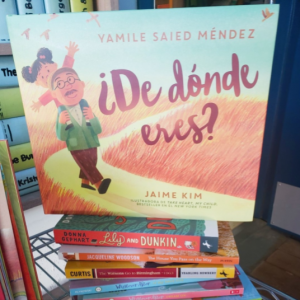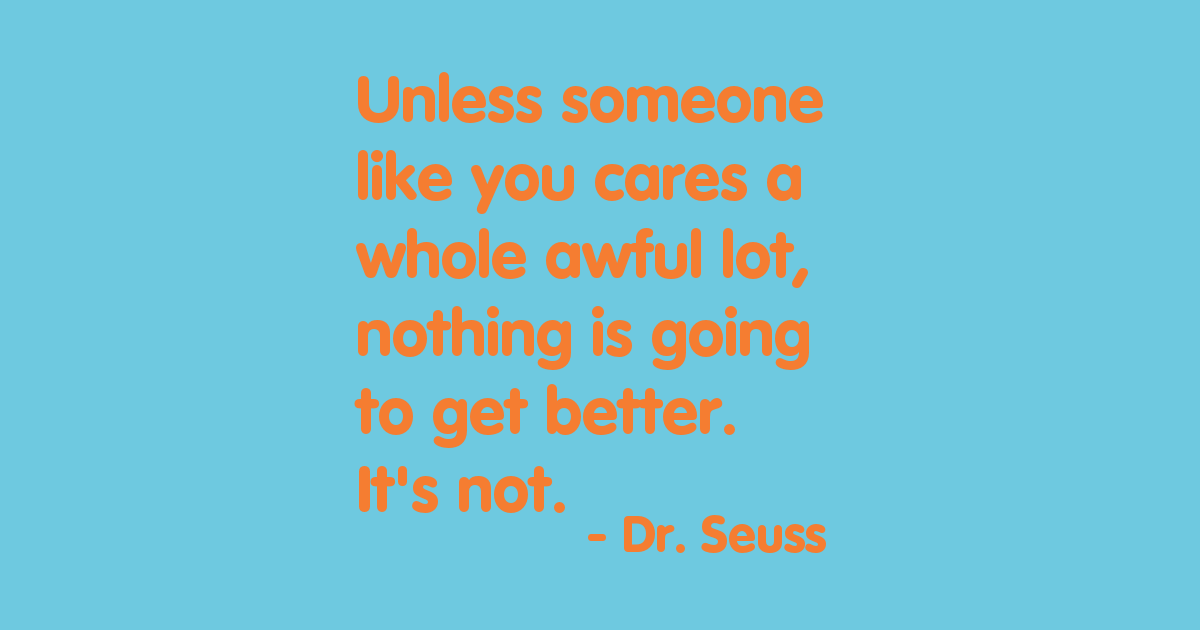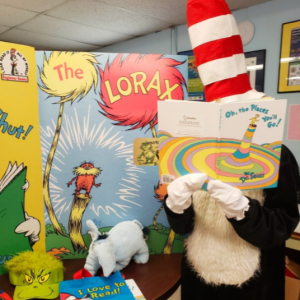By Emily Ball Cicchini, Ph.D., Executive Director
Let’s talk about Dr. Seuss! You may have heard that some of his books are being discontinued by their publishers. Some people are saying that this is censorship or something called “cancel culture.” However, only six from his collection of 60 books are being voluntarily unpublished because they have drawings that today we can recognize as stereotypical, demeaning, dismissive, and hurtful. What if we decide that books that display racism are simply not that good? We want to curate good books for our children. Beautiful books. Books that are true to life and the imagination.
Does this mean that all of Dr. Seuss is getting “canceled?” Of course not. Plenty of his books do exactly the opposite, advocating for difference, care, and inclusion. Taking away these six books does not mean that the 54 others have no value. Or that we don’t value his amazing contributions to the field of children’s literature and to the childhoods of many of us who are adults today.
Two of these books, And to Think That I Saw It on Mulberry Street and If I Ran the Zoo were actually used by my parents to help teach me about racism against Blacks and Asians when I was growing up, but our favorites were One Fish, Two Fish and The Lorax. Books that are classic but have been found to have racist messages can be used as “learning opportunities,” as parents and librarians start to pull them out of circulation. Research says that children become aware of racism at a very young age. So why shouldn’t we be discussing it openly with them? When we decide that some book is not good, because it represents a world that is ignorant, we should be saying why that is so, not just tucking it away as if it never existed. It becomes a teachable moment.
We can decide to focus on certain cultural works that promote understanding and note others, even done unintentionally, as mistakes. White writers often exhibit the biases of white privilege that make them unaware of how they are perpetuating racism. But this does not mean all their writing is bad. It does mean that White people, like me, all have a lot to learn about our implicit biases and how to make space for other voices and other cultures, particularly Black, Indigenous, People of Color (BIPOC).
BookSpring is actively working on becoming more anti-racist at the board, staff, and book curation level. We’ve released a Diversity, Equity, and Inclusion statement and made it part of our 2020-2025 Strategic Plan. We launched a Community Advisory Committee to get feedback from the people in the many different communities we serve, and are doing a brown bag lunch internally to discuss issues of racial bias.
We’ve released a Diversity, Equity, and Inclusion statement and made it part of our 2020-2025 Strategic Plan. We launched a Community Advisory Committee to get feedback from the people in the many different communities we serve, and are doing a brown bag lunch internally to discuss issues of racial bias.
BookSpring is concerned about the insensitive portrayals of race in children’s literature. As such, we will discontinue the distribution of specific single works by any author with racist content, but not their entire bodies of work categorically. We will also use such instances as teaching tools about stereotyping and intolerance for parents and educators. And we are striving to increase the number of books distributed to all children that are by, for, and about People of Color.
We can choose to value a vision of a world where people read, listen, and take shared responsibility for each other and our planet’s happiness and well-being. That’s the wise, beautiful, and good curated culture that I want to live in.
How about you and your children?
For Reference:


